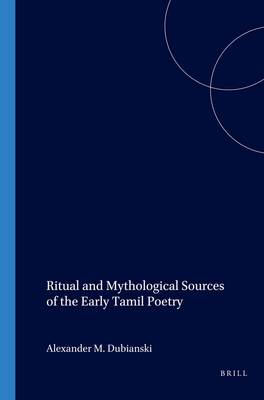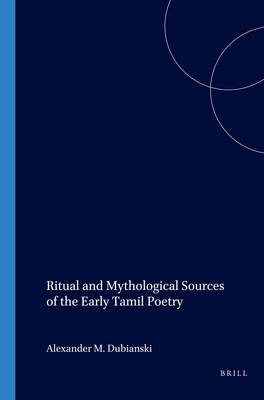
- Afhalen na 1 uur in een winkel met voorraad
- Gratis thuislevering in België vanaf € 30
- Ruim aanbod met 7 miljoen producten
- Afhalen na 1 uur in een winkel met voorraad
- Gratis thuislevering in België vanaf € 30
- Ruim aanbod met 7 miljoen producten
Zoeken
Omschrijving
This volume focuses on the origin of the early Tamil poetical canon, which constitutes a set of specific subjects, images, principles of arrangement of basic poetical themes which are called tiṇai. The author proceeds from the idea of a Russian scholar O. Freidenberg that literary forms 'originate from anti-literary material rather than their own archetypes'.
An outline of mythological concepts, prevalent in ancient Tamil culture, is presented, alongside main mythological figures - Murukaṉ, Māl, Cūr, Koṟṟavai, Vaḷḷi. A controversial notion of aṉanku, especially in its aspect of an inner female energy, is analyzed. In addition, the author explores the panegyric art of the Tamil kings' singers, describing such singers and performers while discussing the idea of ritual character.
The elements of five canonical tiṇai-themes of the akam poetry are examined, where the use of ethnological data suggests that the themes are based on some behaviour patterns which are meant to ensure a reliable control over the female energy. Finally, the text raises the problem of earlier poetic forms that consolidated the tiṇai system.
An outline of mythological concepts, prevalent in ancient Tamil culture, is presented, alongside main mythological figures - Murukaṉ, Māl, Cūr, Koṟṟavai, Vaḷḷi. A controversial notion of aṉanku, especially in its aspect of an inner female energy, is analyzed. In addition, the author explores the panegyric art of the Tamil kings' singers, describing such singers and performers while discussing the idea of ritual character.
The elements of five canonical tiṇai-themes of the akam poetry are examined, where the use of ethnological data suggests that the themes are based on some behaviour patterns which are meant to ensure a reliable control over the female energy. Finally, the text raises the problem of earlier poetic forms that consolidated the tiṇai system.
Specificaties
Betrokkenen
- Auteur(s):
- Uitgeverij:
Inhoud
- Aantal bladzijden:
- 224
- Taal:
- Engels
- Reeks:
- Reeksnummer:
- nr. 8
Eigenschappen
- Productcode (EAN):
- 9789069801100
- Verschijningsdatum:
- 1/01/2000
- Uitvoering:
- Paperback
- Formaat:
- Trade paperback (VS)
- Afmetingen:
- 170 mm x 239 mm
- Gewicht:
- 521 g

Alleen bij Standaard Boekhandel
+ 219 punten op je klantenkaart van Standaard Boekhandel
Beoordelingen
We publiceren alleen reviews die voldoen aan de voorwaarden voor reviews. Bekijk onze voorwaarden voor reviews.








